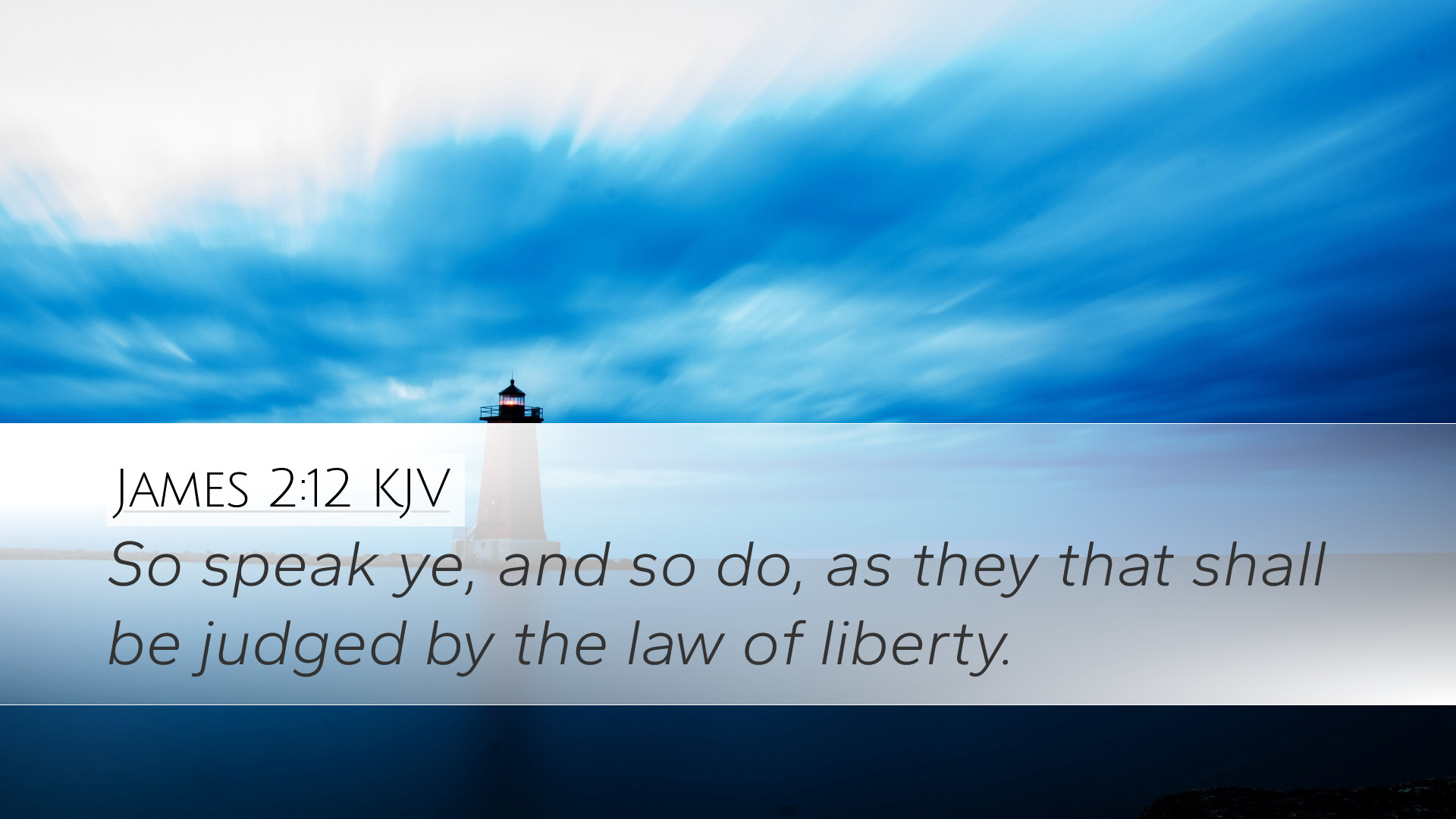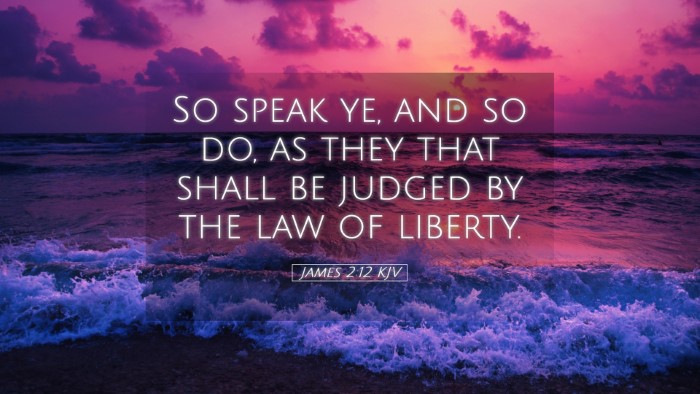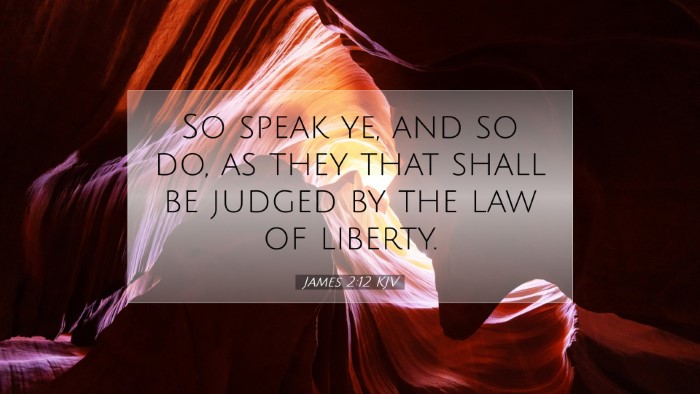Old Testament
Genesis Exodus Leviticus Numbers Deuteronomy Joshua Judges Ruth 1 Samuel 2 Samuel 1 Kings 2 Kings 1 Chronicles 2 Chronicles Ezra Nehemiah Esther Job Psalms Proverbs Ecclesiastes Song of Solomon Isaiah Jeremiah Lamentations Ezekiel Daniel Hosea Joel Amos Obadiah Jonah Micah Nahum Habakkuk Zephaniah Haggai Zechariah MalachiJames 2:12
James 2:12 KJV
So speak ye, and so do, as they that shall be judged by the law of liberty.
James 2:12 Bible Commentary
Commentary on James 2:12
The verse James 2:12 states: "So speak ye, and so do, as they that shall be judged by the law of liberty." This passage encapsulates a vital principle for Christian living and moral conduct, hinting at the serious nature of our accountability to God.
Contextual Background
In the epistle of James, the author addresses believers with a call to practical faith. The surrounding texts emphasize the importance of actions aligned with one’s faith. The principle of faith without works being dead is pivotal and sets the stage for understanding the exhortation in verse 12.
General Themes
- Faith and Works: This passage underlines that true faith is evidenced through our actions and words.
- Judgment: There's an implicit reminder about the judgment that awaits believers, reinforcing the significance of conducting oneself according to divine expectations.
- The Law of Liberty: The 'law of liberty' is a phrase that connects to the freedom believers have in Christ, highlighting the necessity of responsibility that comes with that freedom.
Exegesis and Commentary Insights
1. Matthew Henry's Insights
Matthew Henry emphasizes that the message conveyed in this verse serves as a means of caution for Christians. He notes that speaking and acting with the awareness of impending judgment cultivates a sense of responsibility and humility. According to Henry, believers should strive to speak words of grace and act in ways that reflect the teachings of Christ. He draws attention to the fact that the phrase 'law of liberty' not only refers to freedom from the bondage of sin but also necessitates a life aligned with God's commands.
2. Adam Clarke's Reflections
Adam Clarke elaborates on the concept of the law of liberty, suggesting that it is the moral law that informs believers of what is right and wrong but delivered in a context of grace. Clarke points out that true liberty is realized when individuals choose righteousness and embrace the moral responsibilities that stem from this freedom. He also interprets 'judged' as a call for self-examination; believers should scrutinize their behavior in light of God’s law, suggesting that such reflection is essential for spiritual growth.
3. Albert Barnes' Perspective
Albert Barnes focuses on the phrase "So speak ye, and so do," as an imperative for consistency between belief and behavior. He notes that those who are aware that they will be judged by God's law should let that understanding shape their words and deeds. Barnes highlights the idea that Christian maturity involves a harmonious expression of faith through both speech and action, urging followers to embody the teachings of the Gospel in their daily interactions.
Theological Implications
The theological implications of James 2:12 are profound. In recognizing the impending judgment referenced, believers are called to live lives characterized by righteousness, humility, and integrity. The notion that adherents are judged by the 'law of liberty' suggests a dichotomy of freedom and responsibility—a freedom that liberates from sin but obliges believers to adhere to principle moral truths outlined in Scripture.
Practical Applications
- Integrity in Speech: Believers should evaluate their words, ensuring that they align with biblical truth and reflect the character of Christ.
- Action and Consequence: Understanding that actions have eternal significance can lead to greater intentionality in both personal conduct and community interactions.
- Self-Reflection: Regular self-examination against the 'law of liberty' can foster growth in holiness and adherence to God’s commands.
Conclusion
In conclusion, James 2:12 serves as a solemn reminder of the accountability that comes with the freedom found in Christ. Through the insights provided by Matthew Henry, Adam Clarke, and Albert Barnes, readers are encouraged to embody their faith actively. They are reminded that the essence of Christianity is not merely belief but is profoundly tied to the integrity of one's speech and actions, which will ultimately be evaluated by the Lord. This holistic understanding of faith calls believers to a deeper commitment to live in accordance with God’s principles and to reflect His love and justice in a world that desperately needs both.


